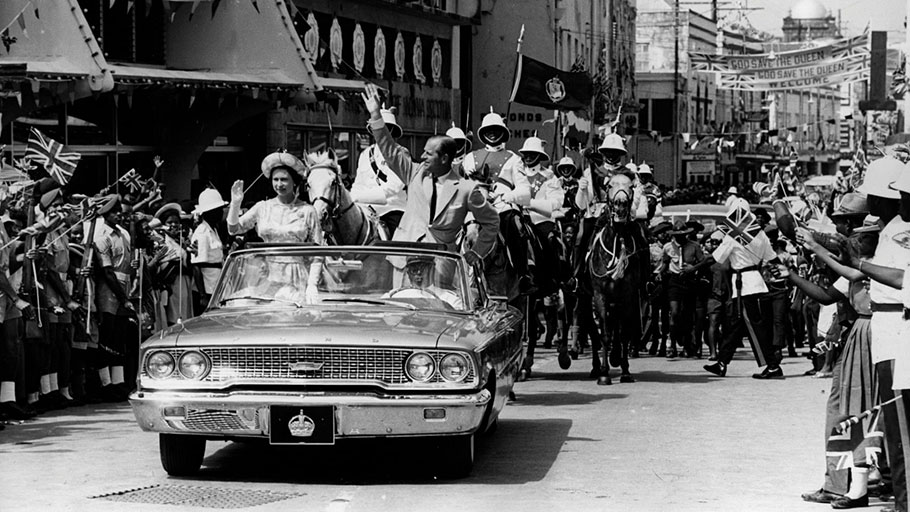The Queen and Prince Philip in Barbados in 1966. The island plans to remove her as head of state and become a republic by November 2021. Photograph: Keystone/Getty Images
Barbados has announced its intention to remove the Queen as its head of state and become a republic by November 2021.
A speech written by its prime minister, Mia Mottley, quoted a warning by the Caribbean island nation’s first premier, Errol Barrow, against “loitering on colonial premises”.
Reading the speech, governor-general Dame Sandra Mason said: “The time has come to fully leave our colonial past behind. Barbadians want a Barbadian head of state.
“This is the ultimate statement of confidence in who we are and what we are capable of achieving.
“Hence, Barbados will take the next logical step toward full sovereignty and become a republic by the time we celebrate our 55th anniversary of independence.”
The country gained its independence from Britain in 1966, though the Queen remains its constitutional monarch and head of state.
In 1998, a Barbadian constitutional review commission recommended republican status, and in 2015 the then prime minister, Freundel Stuart, said “we have to move from a monarchical system to a republican form of government in the very near future”.
Most Caribbean countries have kept formal links with the monarchy after achieving independence.
Barbados would join Trinidad and Tobago, Dominica and Guyana if it proceeds with its plan to become a republic. Jamaica has also flagged such a transition, with prime minister Andrew Holness saying it is a priority of his government.
Barbados took another step towards independence from the UK in 2003 when it replaced the London-based judicial committee of the privy council with the Caribbean court of justice, located in Trinidad, as its final appeals court.
In 2015 it said it wanted to move to republic status within one year.














